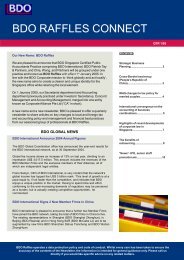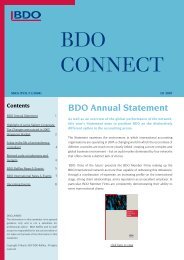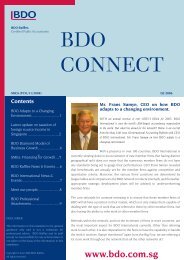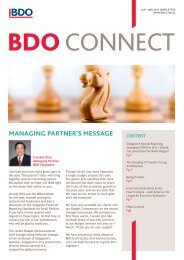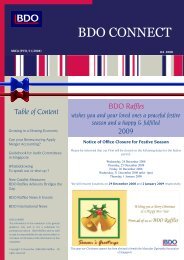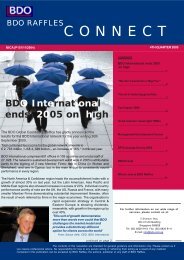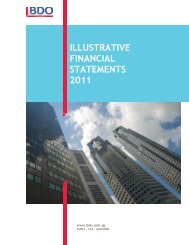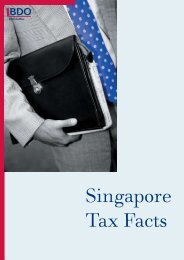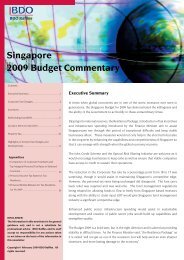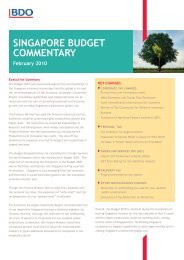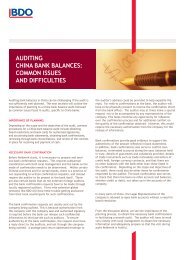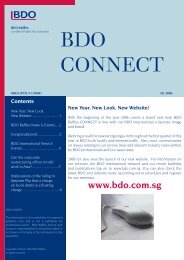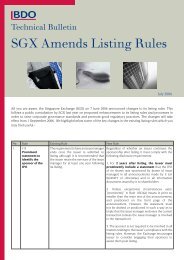(ESOP) ANd EMPLOYEE SHARE OWNERSHIP ... - bdo singapore
(ESOP) ANd EMPLOYEE SHARE OWNERSHIP ... - bdo singapore
(ESOP) ANd EMPLOYEE SHARE OWNERSHIP ... - bdo singapore
You also want an ePaper? Increase the reach of your titles
YUMPU automatically turns print PDFs into web optimized ePapers that Google loves.
The taxable value under the deemed exercise rule is computed as:<br />
A – B<br />
Where<br />
A – is the open market price of the shares one month before the<br />
date the individual ceases employment or the date of the grant<br />
of the stock options, whichever is the later ; and<br />
B – is the<br />
• exercise price payable under the unexercised <strong>ESOP</strong>; or<br />
• exercise price of the shares under restricted <strong>ESOP</strong>; or<br />
• price paid or payable for shares acquired under an ESOW Plan<br />
with vesting imposed (with no moratorium); or<br />
• price paid or payable for restricted shares acquired under an<br />
ESOW Plan, as the case may be.<br />
Tracking Option<br />
As an alternate to the deemed exercise rule, the employer<br />
may elect for the tracking option scheme instead. Under this<br />
scheme, the employer is required to compute and to report<br />
the gains to the IRAS. However, the payment of taxes may be<br />
deferred to the date when the options are exercised. In order<br />
to be eligible for the tracking option, employers are required to<br />
provide an undertaking that taxes would be paid. Additionally,<br />
there are several conditions that need to be satisfied in order to<br />
be eligible for the tracking option.<br />
Prior approval must be sought from the IRAS before the<br />
employer could operate under this scheme.<br />
The final gain must be reported to IRAS in order to process the<br />
employee’s tax clearance assessment prior to departure from<br />
Singapore.<br />
However, in the event that the actual gains derived upon the<br />
exercise of the options are lower than that computed under the<br />
“deemed exercise” rule, the employee may apply to the IRAS to<br />
have a reassessment of his tax liability:-<br />
• Within 6 years from the year of assessment following the year<br />
in which the deemed exercise rule is applied ; and<br />
• To furnish the relevant documentation to demonstrate that<br />
the actual tax liability is lower than that computed under the<br />
“deemed exercise rule”.<br />
Rohan Solapurkar<br />
Tax Director<br />
Tax Advisory<br />
rohan@<strong>bdo</strong>.com.sg<br />
Direct: +65 6828 9171



